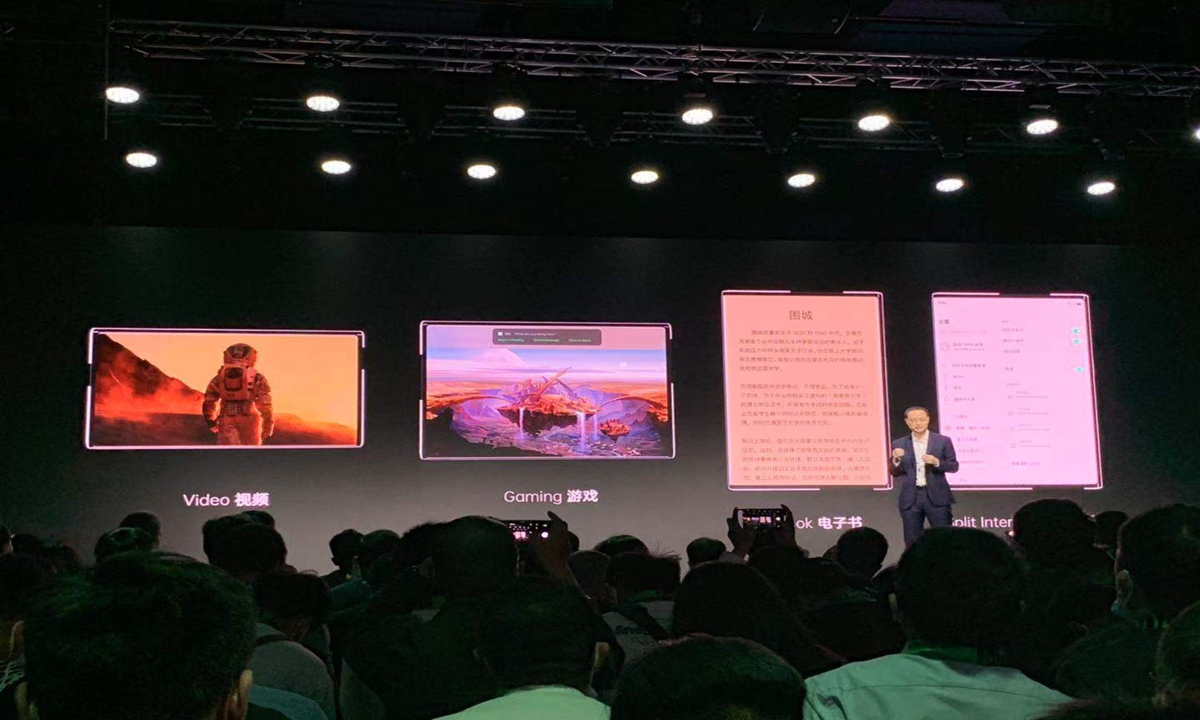
Oppo introduces Oppo X 2021 rollable concept smartphone during the Inno Day 2020 in Shenzhen, South China's Guangdong Province on Tuesday. Photo: Li Xuanmin/GT
Chinese smartphone maker Oppo is ranking second in global smartphone market share in May, 2021, with a 16 percent share of unit sales, beating Apple by one percent, data showed.
According to a newly released report by global industry research firm Counterpoint, Oppo and its subsidiaries including OnePlus and Realme brands captured the second spot in the global smartphone market in May, followed by Apple at 15 percent.
Another Chinese smartphone maker Xiaomi took the fourth position with a 14 percent share.
"Oppo has a profound understanding of the market and has the ability to grasp the features that consumers like and incorporate such features into their product designs," Xiang Ligang, director general of the Beijing-based Information Consumption Alliance, told the Global Times on Monday.
Jene Park, senior analyst at Counterpoint Research commented in the report that Oppo surpassing Apple to stand as the second slot globally is attributable to its multi-brand products strategy that includes the premium OnePlus and more accessible realme.
Xiang noted that Oppo makes "smart" designs as its brands do not pursue the most advanced technology and configuration, nor blindly pursue low prices, clearly defining its target audience and market position.
"OPPO family may likely be the next dominant brand to come from China after Huawei," said Park.
Huawei will launch its much-anticipated P50 4G smartphones on Thursday, and the new Huawei phones reportedly will use Qualcomm's Snapdragon 888 semiconductors, while the upcoming 5G versions will use Huawei's self-developed chips.
However, the launch of the P50 series may not have a significant impact on China's domestic smartphone market competition, the analyst said.
The production of Huawei's new phones is likely to be constrained because of semiconductor shortage, and the shipment of the new brands may only reach one million units, whereas the shipment of a Huawei's flagship handset reached about 20 million units, said Xiang.
Huawei might have to wait until the chip shortage is likely to ease up in 2022 at the earliest, once the company can make its own chips, Xiang said.
Huawei is expected to deliver its first flexible OLED driver chip to suppliers at the end of 2021, according to media reports, in a move that could mark a breakthrough for Huawei to circumvent Washington's chips ban.
Oppo, Vivo and Xiaomi remain the predominant players in the domestic smartphone market competition, and brands including ZTE, Lenovo and Honor also have chances to obtain rising market share, according to Xiang.
Global Times




